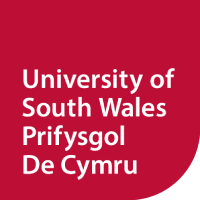Dr J Kulon
No more applications being accepted
Funded PhD Project (European/UK Students Only)
About the Project
Masters by Research Opportunity
Here is an exciting opportunity to study a digital human modeling which could lead to entirely new approaches in postural assessment and visualisation in rehabilitation engineering.
This is a funded MRes, including a generous stipend and tuition fees, with well-resourced circumstances for a successful scholarship.
The selected candidate will apply their computer graphics and programming skills and ambition to create an interface to an existing prototype of a Digital Human Model (DHM). This multidisciplinary project, will allow the student to develop transferable knowledge and skills in this most exciting and active field of digital human modeling research.
This Knowledge Economy Skills Scholarship (KESS) project will be held in the Faculty of Computing, Engineering and Science at the University of South Wales. KESS is a programme funded by the European Social Fund (ESF) awarded by the Welsh European Funding Office (WEFO) in the Welsh Government. The focus of this project is on the development of a user interface and a validation of the DHM functionality for postural assessment. This technology has the potential to drive improvements in health and well-being of patients by enabling more accurate postural assessment and anatomical landmarks visualisation.
The project is co-sponsored by the Rehabilitation Engineering Unit (REU), which is currently part of the Artificial Limb and Appliance Service of Cardiff & Vale University Health Board. REU is an NHS healthcare science department specialising in the delivery of assistive technology services to patients. REU has already devoted substantial resources to this avenue of research and will continue to contribute by making available clinical facilities and laboratories.
Programme of research:
To date, it has been possible to demonstrate that the DHM is capable of visualising and accurately recording internal skeletal configuration as indicated by anatomical landmarks.
Additional research is needed to quantify the impact of the DHM on clinical practice and compare the DHM process with the current practice of manually analysing patient’s records to monitor and visualise postural changes over time. MRES student will design and develop a user-friendly interface to a DHM enabling clinicians to enter data, modify the model parameters and output the modelling results. He/she will be involved in an ongoing clinical trial and conducting data analysis, testing and the validation of the DHM.
This multidisciplinary project will provide a student with excellent research training experience in an extensive range of skills including medical data analysis and computer programming. The successful candidate will be offered an honorary NHS contract.
Studentship:
The studentship will cover the fees for a 1-year full-time MRes programme and pay a stipend of circa £11k p.a. There is also around £3k project support costs available for consumables, travel, minor equipment, training (including the KESS Grad School) and conference attendance.
The position is available from 1st October 2019.
Eligibility of Student:
To be eligible to hold a KESS studentship, you must:
• have a home address in the Convergence area (details below)* at the time of registration.
• have the right to take up paid work in the Convergence area* on completion of the scholarship.
• be classified by the University as ‘home’ or ‘EU’ for tuition fees purposes according to the University’s guidelines.
• satisfy University of South Wales’s admissions criteria: see below, qualifications and experience and application process
Qualifications and experience:
Eligible applicants will:
• Have a degree (2i or higher) in computing, engineering or a related discipline.
• Possess a reasonable understanding of computer programming and computer graphics. A working knowledge of the Unity game development platform would be an advantage.
• Be highly self-motivated, with capacity to learn and develop new techniques
• Have well-developed and positively collaborative interpersonal skills
• Have an ability to deliver technical reports and communicate findings
• Be willing to travel and work in clinical settings
Application Process:
To download an application package, please visit: http://gro.southwales.ac.uk/studentships/KESSII/participant/
For any queries on eligibility, please contact: KESS Team at Research and Innovation Services, University of South Wales: [Email Address Removed] Tel: 01443 482578
For informal enquiries or further programme information, please contact: Dr. Janusz Kulon (Director of Studies) ([Email Address Removed]).
Further information at Biomedical Engineering and Computing Research Group website:
https://at-web1.comp.glam.ac.uk/KBS/dhm.php
Closing date for applications: 20th May 2019
Funding Notes
Knowledge Economy Skills Scholarships (KESS) is a pan-Wales higher level skills initiative led by Bangor University on behalf of the HE sector in Wales. It is part funded by the Welsh Government’s European Social Fund (ESF) convergence programme for West Wales and the Valleys.

 Continue with Facebook
Continue with Facebook

